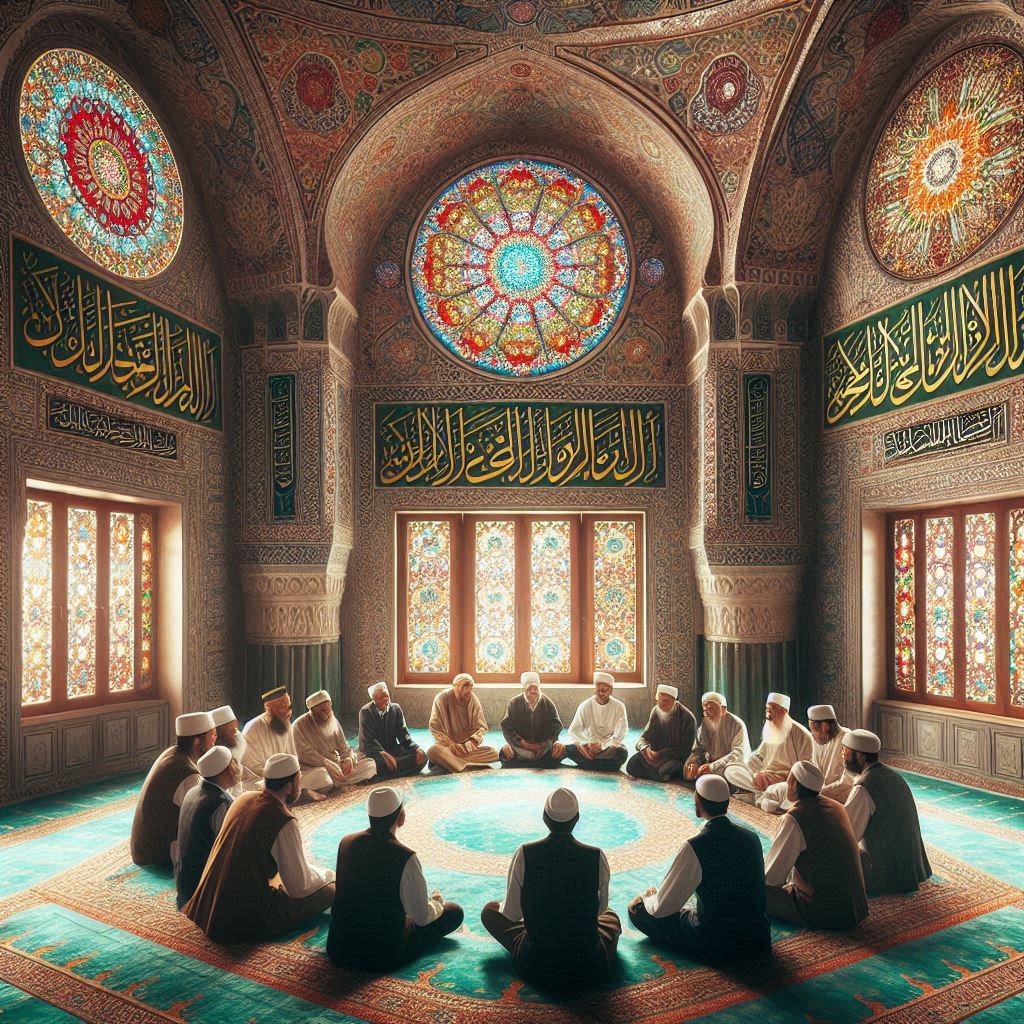For centuries, since the arrival of Islam in the Nusantara, Indonesia has seen the establishment of hundreds of thousands of mosques across the country. According to the official website of the Ministry of Religious Affairs (Kemenag) as of March 7, 2024, Indonesia boasts 511,899 mosques and prayer rooms: 242,823 mosques and 269,076 prayer rooms.
This recorded number is impressive, and there are likely many more mosques and prayer rooms that are not documented. This is a source of pride for Muslims in Indonesia. However, it raises a critical question: to what extent do these numerous mosques contribute to the progress and civilization in Indonesia?

Various sources, such as detik.com and disway.id, indicate that Indonesia ranks first globally in the number of mosques and prayer rooms, followed by India, Bangladesh, and Pakistan.
Interestingly, the countries with the highest number of mosques are still classified as developing nations, not advanced ones. Why is this the case? Does the abundance of mosques not influence progress? This issue calls for self-reflection among Muslims, especially in Indonesia, indicating a potential underlying problem.
Historically, mosques have been crucial institutions for Muslims. During the Prophet Muhammad’s time, the mosque was the heart of Muslim life. Beyond worship, the Prophet often discussed war strategies and political plans with his companions in the mosque. It also served as a school, a social activity center, and even a place for medical treatment.
The importance of mosques is highlighted in a hadith where a blind man requests permission to pray at home, but the Prophet still instructs him to go to the mosque:
عَنْ أَبِي هُرَيْرَةَ قَالَ أَتَى النَّبِيَّ صَلَّى اللَّهُ عَلَيْهِ وَسَلَّمَ رَجُلٌ أَعْمَى فَقَالَ يَا رَسُولَ اللَّهِ إِنَّهُ لَيْسَ لِي قَائِدٌ يَقُودُنِي إِلَى الْمَسْجِدِ فَسَأَلَ رَسُولَ اللَّهِ صَلَّى اللَّهُ عَلَيْهِ وَسَلَّمَ أَنْ يُرَخِّصَ لَهُ فَيُصَلِّيَ فِي بَيْتِهِ فَرَخَّصَ لَهُ فَلَمَّا وَلَّى دَعَاهُ فَقَالَ هَلْ تَسْمَعُ النِّدَاءَ بِالصَّلَاةِ قَالَ نَعَمْ قَالَ فَأَجِبْ
**“Narrated by Abu Hurairah: A blind man came to the Prophet and said, ‘O Messenger of Allah, I have no one to guide me to the mosque.’ He then asked the Prophet for permission to pray at home. When the man turned away, the Prophet called him back and asked, ‘Do you hear the call to prayer?’ The man replied, ‘Yes.’ The Prophet then said, ‘Respond to it (by attending the congregational prayer).’”** (HR. Muslim no. 1044).
As part of the Muslim community, we should preserve the spirit taught by the Prophet with the presence of mosques. Enriching the mosque is our collective responsibility as followers of the Prophet.
Yet, have we truly enriched our mosques in the spirit desired by Allah and His Messenger? Allah says:
إِنَّمَا يَعْمُرُ مَسَٰجِدَ ٱللَّهِ مَنْ ءَامَنَ بِٱللَّهِ وَٱلْيَوْمِ ٱلْءَاخِرِ وَأَقَامَ ٱلصَّلَوٰةَ وَءَاتَى ٱلزَّكَوٰةَ وَلَمْ يَخْشَ إِلَّا ٱللَّهَ ۖ فَعَسَىٰٓ أُو۟لَٰٓئِكَ أَن يَكُونُوا۟ مِنَ ٱلْمُهْتَدِينَ
**“The mosques of Allah shall be visited and maintained by such as believe in Allah and the Last Day, establish regular prayers, and practice regular charity, and fear none except Allah. It is they who are expected to be on true guidance.”** (At-Taubah: 18)
According to the Tafsir of Ibn Kathir, this verse refers to the story of Abdul Muttalib, a wealthy and generous merchant and the Prophet’s uncle, who maintained and cared for the Masjid al-Haram, providing free water to all pilgrims. His descendants, like Abbas ibn Abdul Muttalib, followed his example. However, their efforts in maintaining the mosque were not accompanied by faith in Allah. Hence, Allah criticized this in the subsequent verse:
أَجَعَلۡتُمۡ سِقَایَةَ ٱلۡحَاۤجِّ وَعِمَارَةَ ٱلۡمَسۡجِدِ ٱلۡحَرَامِ كَمَنۡ ءَامَنَ بِٱللَّهِ وَٱلۡیَوۡمِ ٱلۡـَٔاخِرِ وَجَـٰهَدَ فِی سَبِیلِ ٱللَّهِۚ لَا یَسۡتَوُۥنَ عِندَ ٱللَّهِۗ وَٱللَّهُ لَا یَهۡدِی ٱلۡقَوۡمَ ٱلظَّـٰلِمِینَ
**“Do you make the giving of drink to the pilgrims, or the maintenance of the Sacred Mosque, equal to (the pious service of) those who believe in Allah and the Last Day, and strive with might and main in the cause of Allah? They are not comparable in the sight of Allah: and Allah guides not those who do wrong.”** (At-Taubah: 19).
Verse 18 of Surah At-Taubah explains that those who truly deserve to maintain the mosques are those who believe in the Last Day, consistently perform prayers, give charity, and fear none but Allah.
From this verse, we learn that the rightful maintainers of mosques are those with intellectual independence, ensuring their faith and prayers are steadfast, and those with sufficient or excess financial strength to give charity without fear.
Today, the ideal concept of enriching mosques has been distorted. Nowadays, mosques are seldom used for activities such as strategic discussions, political debates, education, or economic planning, as they were during the Prophet’s time.
Despite their grander architecture, modern mosques often serve minimal functions. They are primarily used for ritual purposes, rarely engaging in contemporary political or national issues.
This change can be attributed to a gradual shift towards secularism, which separates religion from politics. In truth, religion and politics should be two sides of the same coin. Without political strength, the Muslim community cannot build a civilization.
Furthermore, the individuals responsible for enriching mosques in the Prophet’s time were highly intellectual and financially capable, as outlined in Surah At-Taubah, verse 18. This contrasts sharply with the present, where the main caretakers, often termed “marbot,” are typically funded by community donations rather than possessing significant personal authority.
Reflecting on this, building a civilization will remain a distant dream if Muslims do not broaden their perspectives. The current lag in Muslim advancement should serve as a wake-up call. Mosques, once the heart of civilization, are now mostly confined to ritual activities.
This is the challenge we must contemplate and address with utmost seriousness. The future progress of the Muslim community rests on our shoulders as the hopeful generation. Let us, therefore, continue to think progressively towards building a civilization and realizing the ideals within the Quran.
Wallahu a’lam bi al-shawab (And Allah knows best).






